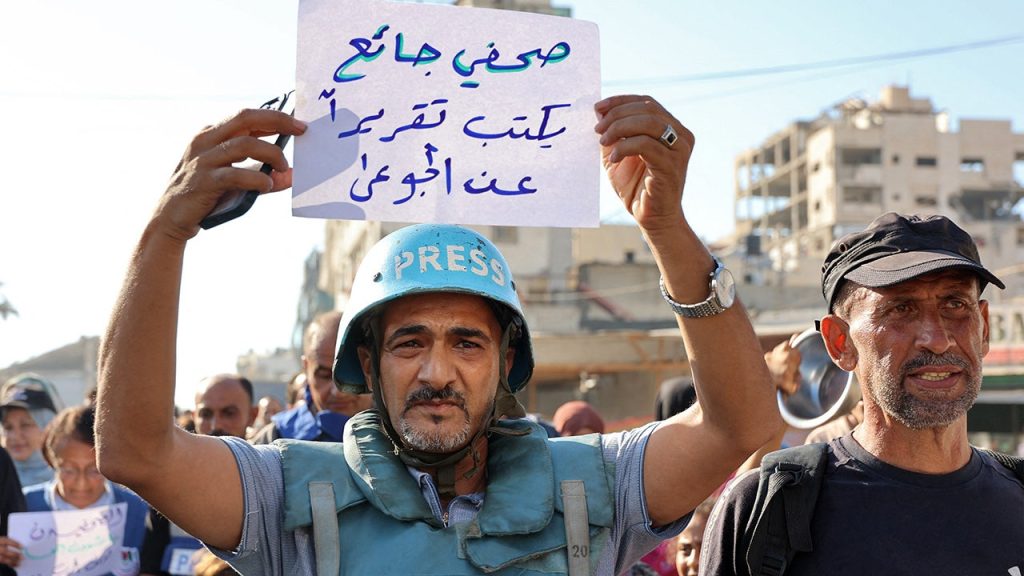Rising Tensions: Antisemitism Concerns Spark Global Debates
In a climate of increasing concern over antisemitism worldwide, recent developments have highlighted growing tensions across political, educational, and international spheres. The United Nations recently sparked controversy with a report declaring famine conditions in Gaza, leading to heated exchanges between UN leadership and Israeli officials. UN Secretary-General António Guterres characterized the situation as “a man-made disaster, a moral indictment and a failure of humanity itself,” while Israeli Prime Minister Netanyahu’s office firmly rejected the findings as “an outright lie.” This fundamental disagreement reflects the broader polarization surrounding the Israel-Hamas conflict, with humanitarian concerns being weighed against security imperatives in increasingly contentious public discourse.
The ripple effects of October 7th and the subsequent conflict continue to create political divisions, even within traditionally unified groups. At the Democratic National Committee’s summer meeting, party members faced internal conflict over their position on Gaza. While successfully backing a general call for ceasefire, the committee rejected a more far-reaching resolution that would have demanded both an arms embargo and the suspension of U.S. military aid to Israel. This split reveals the challenging balance Democratic leaders face in addressing humanitarian concerns while maintaining traditional support for Israel – a microcosm of the broader societal tensions the conflict has generated across America. As the presidential election approaches, these divisions may prove increasingly consequential for party unity and electoral strategy.
Educational institutions have become another battleground in this widening conflict, with congressional Republicans launching investigations into alleged antisemitism at prestigious medical schools. House Education and Workforce Committee chairman Rep. Tim Walberg has demanded extensive documentation from the University of California Los Angeles and UC San Francisco medical schools, giving administrators just two weeks to comply. The probe focuses on reports that Jewish students and faculty have experienced “hostility and fear” on campus – part of a larger pattern of concerns about antisemitism in academic settings since October 7th. These investigations raise important questions about the boundaries between political expression and discriminatory behavior, and how universities should navigate these complex waters.
International responses to antisemitism have also intensified, with Australia recently taking the dramatic step of expelling two Iranian diplomats after linking the Islamic Republic to antisemitic attacks in Sydney and Melbourne. This diplomatic action highlights the global nature of concerns about antisemitism and the increasing willingness of some governments to take concrete measures in response. Meanwhile, the cultural sphere has become another arena for these tensions, as demonstrated by controversy surrounding the Toronto Film Festival’s handling of “The Road Between Us,” a documentary about the October 7th Hamas attack. The festival initially pulled the film citing copyright concerns – a decision actor and filmmaker Yuval David called “absurd and bizarre” – before ultimately reversing course and agreeing to screen it. The episode illustrates how artistic and cultural institutions are struggling to navigate the intensely polarized reactions to the conflict.
The dispute over conditions in Gaza exemplifies how humanitarian assessments have become politically charged. Richard Goldberg of the Foundation for Defense of Democracies claimed, “The ideology of destroying Israel and saving Hamas is widespread within the U.N. and far-left NGOs, leading them to change their own guidelines for declaring a famine in Gaza while they ignore an actual famine in Sudan.” This perspective highlights the concern among Israel’s supporters that humanitarian frameworks are being selectively applied in ways that disproportionately criticize Israel. For Jewish communities watching these developments, such controversies can contribute to a sense that antisemitism is being normalized or disguised as political criticism. At the same time, humanitarian organizations stress the genuine suffering of Palestinian civilians caught in the conflict.
As these tensions continue to unfold across political, educational, cultural, and diplomatic spheres, the challenge remains to find ways to address legitimate concerns about both rising antisemitism and the humanitarian crisis in Gaza. Jewish communities worldwide report feeling increasingly vulnerable, while Palestinians and their supporters emphasize the devastating impact of the ongoing conflict. The polarization surrounding these issues makes constructive dialogue increasingly difficult, with each side often viewing the other’s concerns through a lens of suspicion. Moving forward, leaders in all sectors will need to find ways to acknowledge the real fears and suffering on all sides while resisting the tendency toward dehumanization that has characterized too much of the discourse around this conflict. The path toward reconciliation begins with recognizing the humanity in those with whom we most deeply disagree.


